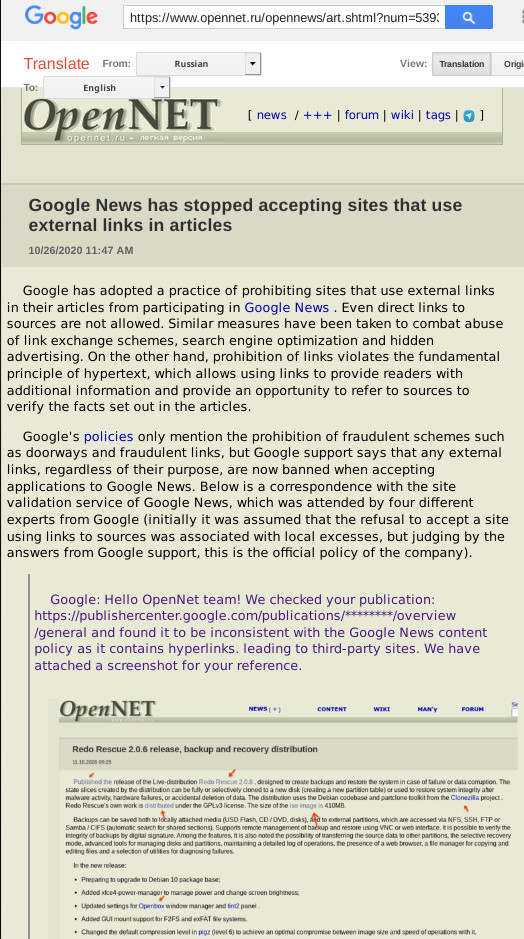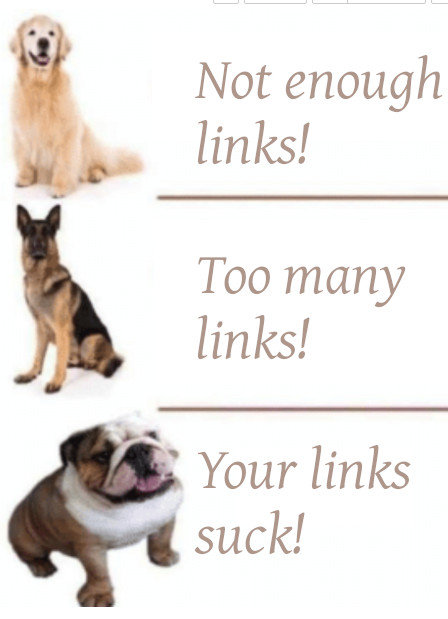
Summary: Ahead of our fourteenth anniversary we're planning to put more emphasis on text than on links
O
NE INCREASINGLY COMMON demonisation argument to be leveraged against small sites (or autonomous publishers) is that they lack links to support their claims. It shields false narratives from being questioned, where money sets and cements those narratives. If these small sites have lots of links, they get accused either of not using "good authority" links (like corporate sites and widely-gamed Wikipedia) or linking to themselves, a.k.a. cross-referencing (being self-referential is perfectly acceptable if nobody else covers the same topic and it's not necessarily an indication of weak supporting data as much as proof of media suppression/blind spot). Some go further and say that failing to link to
many different domains is also a
necessarily bad thing (and that all those domains must be "good authority" links -- whatever that even means). What this typically boils down to is someone disliking the message -- even if it is 100% accurate/factual -- then
nitpicking things like typos/grammatical choices and, failing that, the "quality" of links. Never mind if many so-called "good authority" sources, such as corporate news sites/newspapers, have no links at all, not even textual references appended at the end (for a
printed medium anchor text and clickable items aren't a possibility at all). Never mind
bribed-for fake 'reporting' (like the
EPO bribing academia and mainstream media). We're just asked to trust them blindly because of their budget,
typically derived from the very same companies/institutions they write about. Regarding radio/television, forget about
any form of sourcing/referencing. It's an audio/visual presentation, lacking anything resembling even one single reference ("he said"/"she said" hardly counts and quotes can be distorted/paraphrased to appease partisan audiences with a divisive agenda in mind).
"We have some important revelations and leaks coming (it's in the pipeline already) and we don't want to be in a position where we choose between self-censorship and something else."In the above screenshot we see how Google's spam dump (plagiarism cesspool known as "Google News") assesses the supposed 'credibility' of publications. Superficialities galore. Bearing in mind our shift to text-only daily bulletins, at least as a choice, we might also reduce the amount of linking we do. Links are not visible in that publication form anyway. Our site has long been accessible to blind people (down to the level of explaining all images in terms of descriptive text) and we're rarely proven wrong on important points. Prove otherwise...
 It's a safe prediction that over time we'll invest more effort in independent publishing in both the association and the technical sense (the latter aspect means isolation from centralised and monopolistic platforms). We have some important revelations and leaks coming (it's in the pipeline already) and we don't want to be in a position where we choose between self-censorship and something else.
It's a safe prediction that over time we'll invest more effort in independent publishing in both the association and the technical sense (the latter aspect means isolation from centralised and monopolistic platforms). We have some important revelations and leaks coming (it's in the pipeline already) and we don't want to be in a position where we choose between self-censorship and something else.
Over the past few days we saw Microsoft googlebombing "Linux" with WSL/2 'spam' and a week prior to that it was all "Edge". Because Microsoft's proprietary software is "Linux" when it comes to 'the news' (or Google News). ⬆
"If possible, don't use Microsoft Windows. Buy a Macintosh or use Linux. Don't use Microsoft Internet Explorer, period." - Bruce Schneier

 It's a safe prediction that over time we'll invest more effort in independent publishing in both the association and the technical sense (the latter aspect means isolation from centralised and monopolistic platforms). We have some important revelations and leaks coming (it's in the pipeline already) and we don't want to be in a position where we choose between self-censorship and something else.
It's a safe prediction that over time we'll invest more effort in independent publishing in both the association and the technical sense (the latter aspect means isolation from centralised and monopolistic platforms). We have some important revelations and leaks coming (it's in the pipeline already) and we don't want to be in a position where we choose between self-censorship and something else.